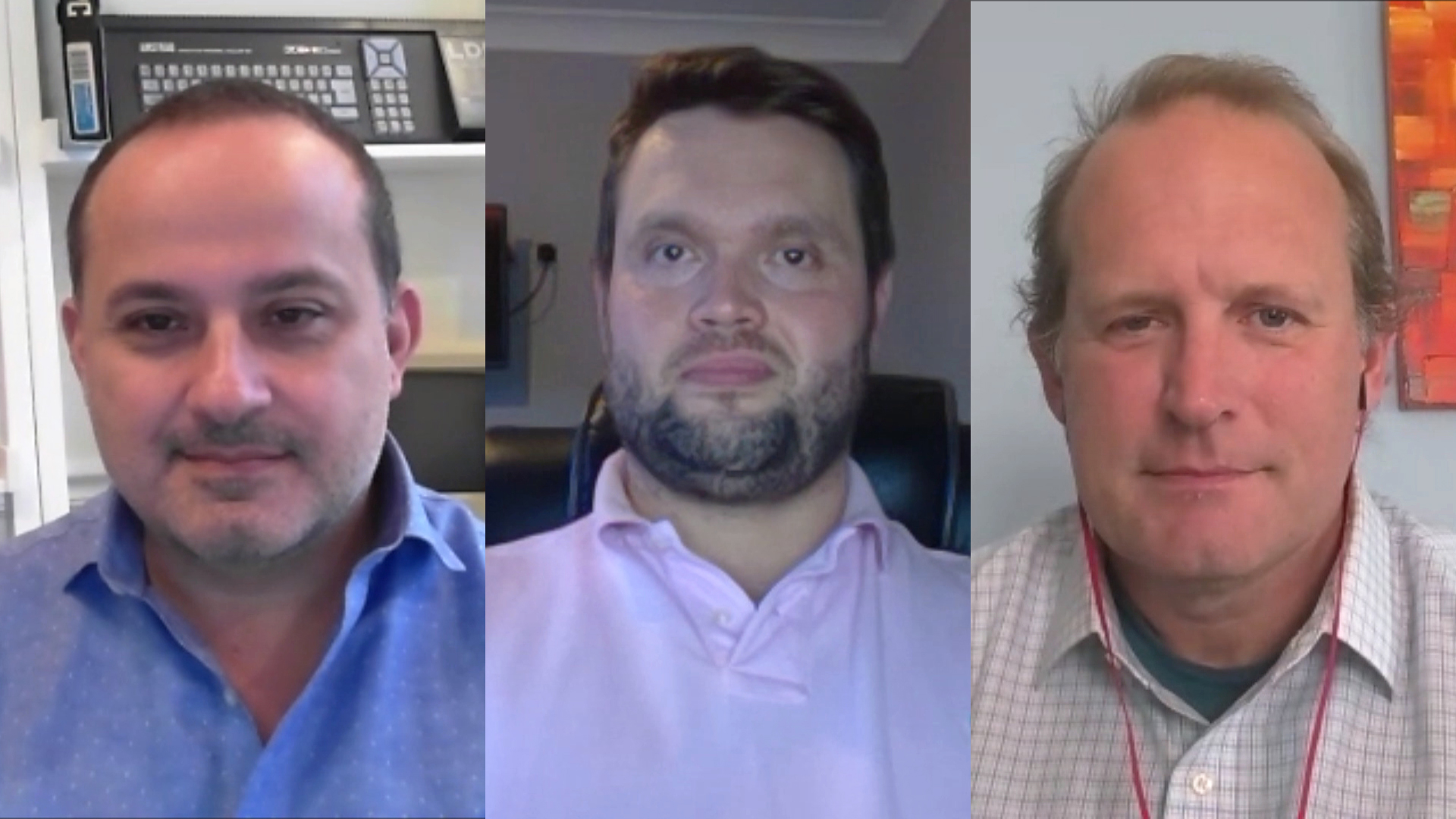 APPS
APPS
 APPS
APPS
 APPS
APPS
How do DevOps teams maintain the speed of their workflows as they close out the chaos of 2020 and head into the as-yet-unknown working environment of 2021?
The answer, according to a panel of experts, is combining practicality and creativity using tools not just to measure performance, but to advance collaboration and identify anti-patterns that are crimping the pipeline.
“We have to go back to what is it we’re trying to do collectively; we have to go back to tie everything to the business outcome,” said Serge Lucio (pictured, left), general manager of the Enterprise Software Division at Broadcom Inc. “One of the things that we need to evolve as an industry is to understand that it’s not so much about those flow metrics as it is about how these flow metrics ultimately contribute to the business metric.”
Lucio, Glyn Martin (pictured, center), head of QA transformation at British Telecom Group PLC, and Jeffrey Hammond (pictured, right), vice president and principal analyst at Forrester Research Inc., spoke with Lisa Martin, host of theCUBE, SiliconANGLE Media’s livestreaming studio, during the DevOps Virtual Forum. They discussed the current state of DevOps and how the field is going to evolve over the next year. (* Disclosure below.)
The ability to make decisions autonomously has been a key differentiator for developer teams forced to work from home during the pandemic, according to Hammond.
“It’s turned out to be things like ‘How do we push the software that we’ve created into production?’ that have become the challenge, not ‘Are we writing the right software?’” he said. The term spiritual colocation describes this, he added, “because even though we may be physically distant, we’re on the same plane; we’re connected from a shared purpose.”
Tools enable that by making the information available to build that shared purpose. “To the extent that they enable communication so that we can build that spiritual colocation … [and] reinforce the culture that we want to put in place, they can be incredibly valuable, especially when we don’t have the luxury of physical colocation,” Hammond stated.
A shared purpose is the starting point to create teams that collectively contribute to the business outcome, according to Lucio.
“What is our shared goal? Our shared vision? What is it we’re trying to achieve collectively?” he asked.
As digital transformation quality assurance controller for global telecoms provider BT, Martin sees the collaboration from the point of view of the wider partner ecosystem.
“It’s really important from a number of different aspects that you have the right partner to drive the right culture and the same vision, but also who have the toolsets to help you accelerate, securely and with consistency,” he said.
Broadcom has been one of BT’s supporting partners, providing the tools that are enabling the company to simplify its environment and move into digital operations.
One new toolset Hammond encourages DevOps teams to explore are low-code tools, which can increase the contributions of creative workers and thereby speed up the application development process.
“That’s potentially part of a mainstream strategy as we go into 2021,” he said. “Embrace this idea that you are supporting creative workers, that Agile and DevOps are the peanut butter and chocolate to support creative workers with algorithmic capabilities.”
Watch the complete video interview below, and be sure to check out more of SiliconANGLE’s and theCUBE’s coverage of the DevOps Virtual Forum. (* Disclosure: TheCUBE is a paid media partner for the DevOps Virtual Forum. Neither Broadcom Inc., the sponsor for theCUBE’s event coverage nor other sponsors have editorial control over content on theCUBE or SiliconANGLE.)
THANK YOU